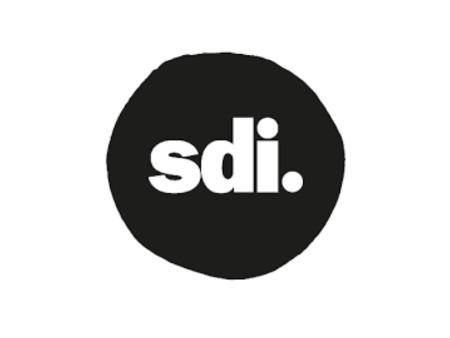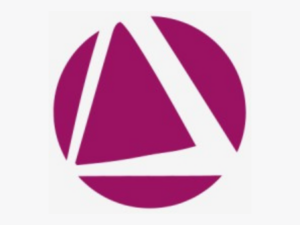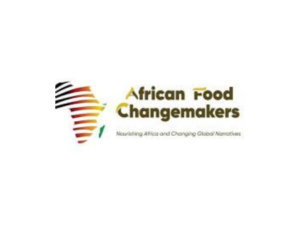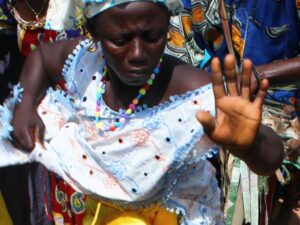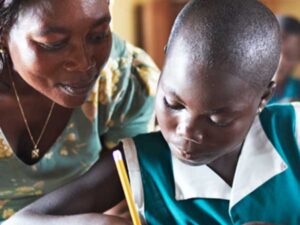Slum Dwellers International is a community-led network comprised of majority slum dwellers. They seek to transform slums into resilient neighbourhoods and inclusive cities by collectively driving a women-led, bottom-up change agenda for securing tenure, and increasing access to basic services, housing and livelihoods.
Beth Chitekwe-Biti of Slum Dwellers International spoke with Lissa Harris on January 22, 2024. Click here to read the full conversation with insights highlighted.
Lissa Harris: Can you start by introducing yourself and your organization? What is the problem that you’re tackling, and how are you trying to address it?
Beth Chitekwe-Biti: I’m Beth Chitekwe-Biti, and I’m the Director of the Secretariat of Slum Dwellers International. This is a network of slum dweller organizations in 22 countries in the Global South. Most of our affiliates are in Southeast Asia, but we have affiliates in Africa and Latin America as well.
We organize around tenure security in cities where the majority of the poorest inhabitants are unable to access decent housing, water, and sanitation, and often end up “squatting” — or living illegally on pieces of land that might be privately-owned or state-owned. Because of the illegality associated with those settlements, they often face forced evictions. They also frequently end up on undesirable pieces of land, so a lot of these settlements experience very significant climate-related challenges, like flooding, wind, heat, and rising sea levels, especially around coastal cities.
The communities we work with are trying to solve the gamut of all of those challenges: illegality, securing tenure, gaining rights to exist in the city, and also ensuring that everyone has access to adequate water, sanitation, and housing. On top of that, addressing climate emergencies is becoming increasingly common in cities across our network.
Lissa Harris: Are you mainly working with frontline organizations that work within these communities, or do you provide direct service to the communities? Who benefits most directly from the work that you do?
Beth Chitekwe-Biti: We set up a network of organizations that are working directly on the ground in all of our countries. These are not NGOs working with beneficiaries, but rather, communities of mostly women that have organized themselves and that mobilize around a variety of issues. They are like small savings collectives; initially, they use funds to address basic challenges.
For instance, if I don’t have food in my home, I might get a loan from my savings group. Over time, they begin to gain skill sets through exchanges with other communities that have been able to address a similar challenge. Then, they start to address bigger problems like, “We don’t have water in our settlement, what should we do? How can we talk to the city so they can bring resources, or who can we link with other agencies? Are there any other agencies that might be able to come and assist?” The network itself is well-led. They are professionals who are trained to provide support.
I’m Zimbabwean even though I’m working in South Africa at the Secretariat. There are professionals who support this network, but the members of the network are slum dweller organizations that are on the ground, dealing with these issues on a day-to-day basis.
Lissa Harris: Are there different levels of formality and organization in the slum dweller communities that you’re working with? Are they at different stages in terms of how organized they are? How do you connect and engage with them?
Beth Chitekwe-Biti: We have three levels that we now define as a network over time.
First, there are groups that are just starting to mobilize and have an interest in being part of the network. Then, there are groups that have already organized, but maybe are working in just one city in the country. We call those emerging federations because they are small groups in different settlements that eventually federate and come together as one. Finally, we have what we call the mature affiliates. Those are organizations that have been able to mobilize across cities within the same country, so they might be working in four or five cities or in all of the cities within that country depending on how urbanized that country is. In those cases, the mobilization is all done by the communities themselves, and we will often interact as professionals supporting them by providing linkages to other organizations or adding value to activities that they’re already doing on the ground.
Data collection is another big part. A lot of the arguments these organizations will present to the state, or central government, or local authority, will be driven by information that they’ve collected regarding what services are actually available, how those services can change, or what development they need. SDI [Slum Dwellers International] has always wanted to frame its strategy like so: If you give someone your problem, you can’t argue about the solution they give you.
In approaching the government, in approaching the local authority, in approaching the donor community, they always want to be able to say: “We have this information. This is how it affects us, this is what we are capable of doing by ourselves, and this is where we think you can support us.” Then, that support is very much targeted towards what the communities themselves require, otherwise, you often see that support ends up becoming a problem. This holds for professionals who work in the network, as well; it’s always about being mindful to support the initiatives of the communities themselves.
Lissa Harris: How do these communities find you when they’re first becoming organized? How do they know about your work?
Beth Chitekwe-Biti: It differs because now, SDI is a profile. It’s often that someone, perhaps within a local authority, heard about SDI or came across SDI’s work and thought it might work in a community that they know, in a city where they work. I was quite involved when the process started in Zimbabwe, and at that time, it was really all by word-of-mouth.
If your community was mobilized, and you had a sister who lived in another city, and you would say, “This is what we have done in our settlement. If there are interested people, we are very happy to have an exchange with you, and you can learn from us.” The history behind it is really around exchanges that started in the ’90s between the Indians and the South Africans. It then became a method where SDI would link up with other organizations.
Sometimes we work through other organizations that are on the ground. In Liberia and Burkina Faso, for instance, we work through the YMCA because they have local linkages with communities that are living in slums. So it differs, but it’s always around making linkages.
Oftentimes, it’s initiated by a crisis. For instance, we ended up working in Lagos because there was a series of really massive evictions, and communities started looking for solutions. They connected with SDI, and that’s how the SDI affiliate in Nigeria was born.
Lissa Harris: Can you talk a little bit about how you work with governments at different levels to support the work that the communities are doing? How do you interface with them?
Beth Chitekwe-Biti: A major part of the experience of most affiliates is that if you live “illegally,” you will not be included on maps. The settlements of the communities that we work with are often not even visible on official city maps. The starting point is to get governments to acknowledge the existence of these settlements. This is where the data comes in. The data includes not only socioeconomic data, but also mapping. In most cases, the federations might ask the local authority to be involved in that data collection, which is a very political thing to do because if they agree, then they have already, in a way, acknowledged the existence of those settlements. Once the data is there, whatever it is saying in terms of beds or toilets, you start to talk with the department that deals with sanitation.
This is what is happening in our community. SDI is asking, “How can we work to better the situation?” We often then end up with a memorandum of understanding with the city to do a number of things collectively. It doesn’t always happen immediately. In a lot of cases, the affiliates need time to even be able to get across town and into the mayor’s office, but eventually, some affiliates have been able to acquire a memorandum of understanding that is legally binding.
In other countries, the impetus might come from the state, where they want to do something about slum upgrading. Then, the federation becomes a partner in that process. For example, in Namibia, our affiliate gets an annual fiscal allocation from the government. The government actually wrote them into their annual budget because they are considered part of the slum upgrading program.
The intention is always to ensure that processes that usually exclude the most marginalized communities are shifted to allow their voices to be prominent and to create policies that are more enabling. If the federations don’t do that, then it’s often very challenging to make it happen. I was trained as a town planner, and I learned that you come with a very specific bias in terms of your worldview. Often, the plans that are developed by the state or local authorities do not address the primary issues of communities that are living on the margins of the city.
Lissa Harris: What would you say makes your approach distinctive from other organizations that are working in this space?
Beth Chitekwe-Biti: I think, largely, who leads the process in our work. There are a lot of non-third sector or civil society organizations that work with communities in enabling ways, but SDI is really a slum organization. It’s not an NGO in the traditional sense. We believe that those affected by the issues should be part of the solution, and even play a central role. That’s one distinction. Another would be around our ethos around negotiations. We insist that you can find a solution if you sit at the table, are prepared to have a conversation, and are very clear about the solution that will work. It’s also important to have tested those solutions. I’ll give you an example that is linked to some of the support that we got from Skoll recently to address the cyclone flooding in Lilongwe.
The community had started to build what they were calling a climate fund that would enable them to build small bridges and waterways to ensure that when it floods, the water moves. Everyone was contributing, and when the resources from Skoll came, they were able to say to the city, “We have been able to raise these funds. Can you put in some resources, as well, so we don’t need to react every time something happens, and we can start to build resilient infrastructure so it doesn’t flood again?” Now, they have a city climate fund to which the communities and the local authorities contribute.
Lissa Harris: Can you share an example that illustrates the impact of the work that you do?
Beth Chitekwe-Biti: There are so many examples. There is the one that I alluded to earlier, about Namibia. For years, the slum dwellers in Namibia, especially in the capital city Windhoek, had been organizing. They started in 1987, and they collected information about every informal settlement in the country, in all of the cities. They used that information, along with the work they’d already done with their own funds to build housing, to argue for a fund that was targeted toward slum dwellers. They weren’t asking for a grant, but a low-interest loan, from the government. Over time, they got it, but there was an additional challenge. No one wanted to pay for the social organization, even though there is always a cost involved in bringing people together. With time, they managed to negotiate with the government and they ultimately got this annual allocation.
Now, they have a fiscal allocation from the government and they continue to build over one thousand houses every year. They’ve been able to use that to leverage additional support from the corporate sector. So they’ve been able to use what they started themselves to get the government to contribute resources to and institutionalize their fund in the sense that it’s now an annual fiscal allocation. They’ve also gotten the corporate sector to make contributions using their corporate social responsibility avenues. They have three corporate organizations that contribute to their housing fund.
The Malawian example is another one where small localized funds that were started by communities were used as the basis to form or design a fund that can be used to address climate emergencies. Malawi has suffered two serious floods and cyclones within the last six years alone.
Other SDI affiliates are starting to replicate that because one big thing around the climate conversations has been financing the resilient infrastructure that is required. People adapt as a matter of course, but if they don’t have resources, their adaptations might not be very robust. We can demonstrate communities’ capacities to manage resources to convince the global climate finance that there are already avenues and infrastructure in terms of how people manage money at the grassroots level, where resources are targeted to the people who are experiencing the climate emergency. Every SDI affiliate has some fund or another; they call them urban poor funds.
Each affiliate member and each federation member makes a contribution to a fund that they can then use at their discretion in response to whatever emergencies they have. They’ve developed very simple, but in some senses, sophisticated ways of managing money at that local level. Here in Zimbabwe, I think we have a world record for inflation. At a time when we had hyperinflation, they decided to index their contributions to a bag of cement. So if you took a loan on that particular day, they would tell you this is equivalent to so many bags of cement.
Whatever you repay, because the inflation was happening so many times over, your repayment would be equivalent to the number of bags of cement that you took. The federations, these women in slums, got this finance issue right before banks thought of it because they were dealing with it on a daily basis. They immediately knew that if we wanted to keep the value of our fund, we had to find a way to index it to something that is tangible, otherwise we would lose. It’s that level of innovation that we see.
Our Indian affiliate did a lot of work around mixing because the government had a program around housing for people living in slums, but they found a way to mix that with private investment so you could end up with a bigger flux than what the government was building. They were able to do that, and they set up a company that still, to this day, builds housing for people living in slums in Mumbai.
Lissa Harris: You’re in touch with so many little community organizations on the ground, I imagine you can play a role in replicating things that are working in one place, in sharing ideas.
Beth Chitekwe-Biti: Yes, exactly. For instance, the Mumbai Federation in India was organizing around the railway because communities lived around the railway. There was a similar community in Nairobi, and they worked together. These two railway communities linked together, and the one in Nairobi was able to negotiate so that families could move slightly away from the railway, but be able to keep their homes and not have a whole demolition.
Lissa Harris: What insights or lessons could be taken from the work that you do, that other organizations or other people in this space, might be able to use in their work?
Beth Chitekwe-Biti: I think people understand the component of urgency only theoretically. I don’t think you can argue that people who suffer from or who experience a particular issue should be at the forefront of addressing it, but I think people often pay lip service. Really understanding urgency is understanding that the solutions that come from the people who are affected are always the best solutions because those people know a lot more. The world is littered with technical solutions that have not worked to address problems in the Global South. We have so many stoves that were meant to ensure that people would not cut down trees. For me, that’s one critical point.
Then there is learning from each other, peer learning. I don’t mean a professional coming to learn from this community, and then taking that information and giving it to another community, but rather the communities themselves teaching each other. Or if it is professionals, inspiring them to ask: “If I’m working with this community, what can I learn from my colleagues in Kenya?” That peer learning component is very important.
Then a third point is around data. SDI, to a large extent, pioneered the collection of data in formal settlements or slums, which is very often self-collection done by communities themselves. Right now, there are artificial intelligence programs that could possibly do this, but we find that the value of that self-collection cannot be merged. We often hear from the government, “Can we really trust your data? It has been collected by people who are not statisticians.”
The process itself is more than just the collection of the data; it’s also mobilizing communities, getting people to understand their communities better, getting them to understand the problems of their communities, and helping them realize that some solutions already exist, and many others could come from us coming together and working together.
We continue to emphasize that component of data collection. We’ve integrated some technology into it because it makes life easier. We used to draw maps of slums by hand. Now, you can just have a GPS machine do that, and you get young people in these communities who are willing and very excited about doing this. So it’s a new skill that is also making the digital divide smaller because oftentimes, these are aspects of technology that are never available to such communities.
We are currently working to upgrade our data process, which we call Know Your City, by incorporating our knowledge of what technology is available, where, and how the technology can integrate with this ethos around people mobilizing each other to work through the challenges that they face.
Lissa Harris: How do you measure success? What evidence do you use to see whether you’re making progress?
Beth Chitekwe-Biti: That question has occupied us over the years. If houses are being built, if people are getting tenure, of course those variables are really important. People who didn’t have water now have water. Those are very objective variables. Our federations keep that data, so they would be able to tell you, “In 2010, we had so many families who managed to secure tenure, and now we have this many, so we have made progress in that particular manner.” We also measure the stories people tell about the dignity that comes with recognition and not worrying about whether you get evicted.
I over-tell this story, but I distinctly remember when we had received some funding from an organization and they were doing an evaluation of our work. We were having a conversation with a group of community women, and I asked this woman, “What difference has being part of the federation made for you?” And she answered, “My relatives would always assume that when I came to visit, I was coming to borrow money, or because I had a problem. Now, when I visit my relatives, I hold my head high because I don’t want anything from them. Whatever I need, I can get from my community because I’m part of this community. If I need a loan, I can get it. If I’m having problems with my husband, I can talk to other women.” Different communities organize around different challenges. When the AIDS pandemic was huge in this part of the world, communities organized to find solutions to HIV challenges even before ARVs became very prevalent. Sometimes, that community organization can be somewhere you can go and talk.
Another part of how we measure success is we have young people who are part of what we call Know Your City TV obtain success stories. We get people to talk about what changes are being made in their lives by being part of this process.
Yes, the objective criteria matters. If I had my figures and reports, I could tell you across the network that so many houses or settlements have been built over this period, and who now has access to water. However, that component around people’s dignity and feelings matters, too. Their citizenship being recognized within the city is critical as well. You can only measure that by talking to people and understanding how they view themselves and what they feel.
Lissa Harris: Can you talk about things that didn’t work? Sometimes we learn as much from what didn’t work as what did. Is there something that you tried that didn’t work out that you learned something from?
Beth Chitekwe-Biti: In one of the first data collection processes that we did, which was in Zimbabwe, we wanted to convince the city that people who rent rooms have the resources to be able to build housing if you make land available. We were collecting more than just information about how many people are renting. In our part of the world, if I have a house, I might build houses where I rent out the rooms. That helps me with my own living, but then I also have tenants in my sublets, living in not-very-nice housing. We were asking, “How much do you pay?”
We collected this information, we came up with a figure, and we went to the local authority, very pleased with ourselves, and said “Look. In this neighborhood alone, there are so many lodgers who are paying this much to the landlords who don’t pay the money to the city. If you give them land, they are in a position to build their own houses.” The city decided to use that data to levy a charge for every lodger living on a landlord’s property. We ended up paying the additional costs because we didn’t want to harm the very same people we were trying to support. People are very conscious about what information you can share and what information you should use for what purpose. Possessing knowledge around how data can be misused is important.
I have another example, around politics. SDI is very clear that we are apolitical. But it’s not always easy to be apolitical in certain circumstances. You can’t always sit on the fence. If you sit on the fence, you have taken a side in some respects. You obviously want to negotiate with this city authority or with that central government, but oftentimes, in my country, there were atrocities and abuse of human rights. Saying we are not going to be political is almost as good as saying, “These people are just as good as the opposition” when that’s a false equivalence. It’s often more a moral issue that affiliates struggle with. The political stance of SDI is often questioned by other organizations that work in this field, and it is often seen as collusion.
When I brought someone from Germany to a community in Zimbabwe, the community showed up all wearing regalia promoting the bad political party called Zanu PF. This was during Robert Mugabe’s time, and the German man was really upset with me. I, then, subsequently went to those women and asked them what happened, and they told me there was a meeting afterward, and if they showed up for that meeting with a white man from Germany without wearing their regalia, they were going to be in trouble.
Their actions were not a sign of allegiance to this political party, but they were protecting themselves. Politics is very complex and oftentimes, I think professionals or civic society organizations ask, “Why do people work against their own interests?” I think it’s something that we can say from a position of privilege, but sometimes, people are not in a position to be able to say that. For me, that’s not so much something that has not worked well, because I think the communities are very savvy in managing that, but it’s something that I think continues to be a moral conundrum for SDI.
Lissa Harris: What are the big challenges that you really haven’t been able to solve, and that you’re still grappling with every day?
Beth Chitekwe-Biti: We are growing as a network, and we are very insistent around our governance structure being one that is managed by slum dwellers. It comes with its own challenges, but you have to bring them together. Ensuring our governance is always true to our intentions is something that we continue to grapple with. We manage it, but it’s something that we don’t want to lose sight of. On one level, we want to ensure that slum dwellers always lead this process, but in order for us to meet and to take into account climate issues, we have to do it digitally. So those two things don’t often merge. We continue to try and meet in-person at least once a year with what we call the council.
The climate issue is also significant because people who are disenfranchised from society often live in the most vulnerable places, and even governments who have prioritized resilient funding or programs often do not prioritize the urban poor. The climate emergency continues to be one that is very often elitist in terms of pitching the conversation. Yet oftentimes, the emergencies are experienced by those who are mostly not at the table, be it nationally or globally. You get the one old slum dweller or the one old person from the First Nations speaking. It’s still something that is very exclusionary, and this has nothing to do with resources. It has to do with how the world works.
Lissa Harris: Can you talk a little bit about what you see as systems-level change, and how you’re working to advance systems-level change on a broader level?
Beth Chitekwe-Biti: I see systems-level change in terms of how policies are made. Who is making them, and who is being consulted? We try to ensure that we make our contribution and avail ourselves to make those contributions at three levels. At the city level, we see it as how communities are negotiating inclusion in the way cities are managed, and in the way city budgets ensure that they have resources for slum dwellers. At the national level, it is policies, and then there is the global level. Globally, we’ve been very involved around the climate change discourse and the climate financing discourse together with other organizations. We’ve created coalitions where we’ve contributed, for instance, to the locally-led adaptation principles. We continue to be involved with UN Habitat, and we have been quite instrumental in the drafting of Goal 11 of the SDGs. We want to have a presence around that, ensuring that those conversations have input from slum dwellers, as well.
Lissa Harris: What do you think is most needed from other actors in the space to advance systems-level change? Whether that’s local governments, or NGOs, or donors–what do other people need to do?
Beth Chitekwe-Biti: Have more conversations that can result in action. We do have some conversations, but oftentimes, they become more like talk shows. We need to be able to say, “I went to this conference, and these are the implications of what that conversation brought to the communities we work with.” We annually reflect on global events that we are part of, and we try to link changes that are happening in our network to those events. For instance, we went to COP28 [United Nations Conference of Parties 2023], but how did our participation there help in advancing practical actions on the ground? There are too many global events that are not linked to action on the ground. That’s often my frustration.
Lissa Harris: It seems to me like COP28 is almost following the action rather than driving it.
Beth Chitekwe-Biti: I’ve never gone, and I don’t think I will go, but people in my organization go. It’s one I’ve said I won’t go to because I think there is a lot that could be done that doesn’t get done. Commitments are made, so maybe at the next one can we say, “We said this last year. What actually happened?” We’ll see whether there will be some recording of the SDGs. The area we are working in, which is Goal 11, is shown as one of the least attractive, and this says a lot about lip service. There is still rural poverty, but there is an increase in urban poverty. That is what we need to focus on and have conversations around.
Click here to read the full conversation with insights highlighted.
Lissa Harris is a freelance reporter and science writer (MIT ’08) based in the Catskills of upstate New York. She currently writes about climate, energy, and environment issues from a local perspective for the Albany Times Union, her own Substack newsletter, and various other digital and print publications.
* This interview has been edited and condensed.
Find other social innovations in housing.

